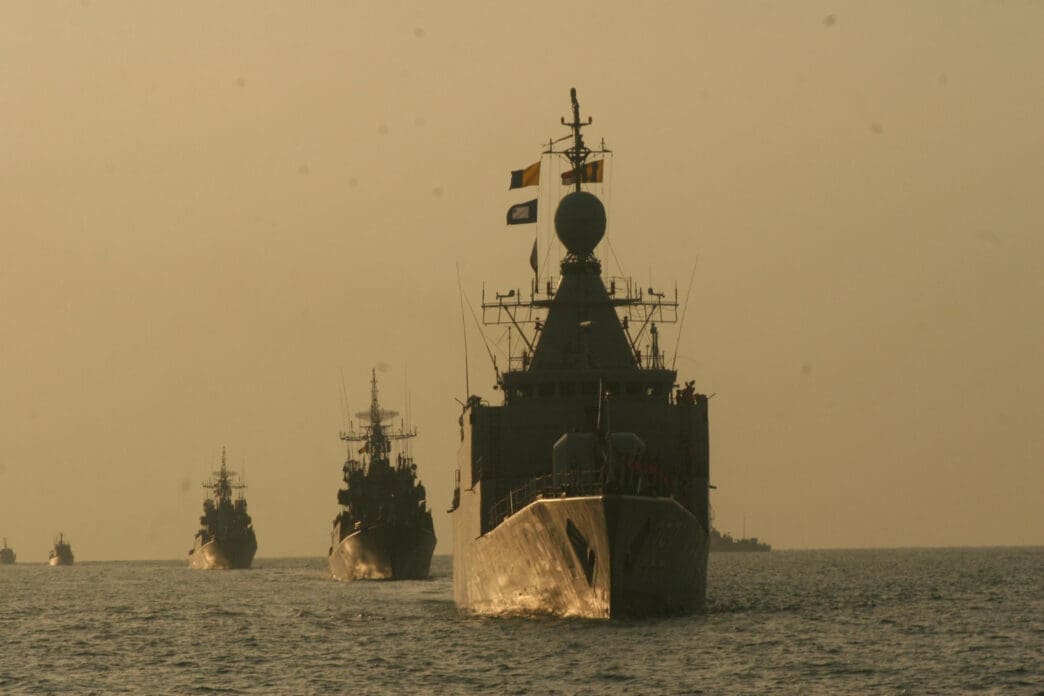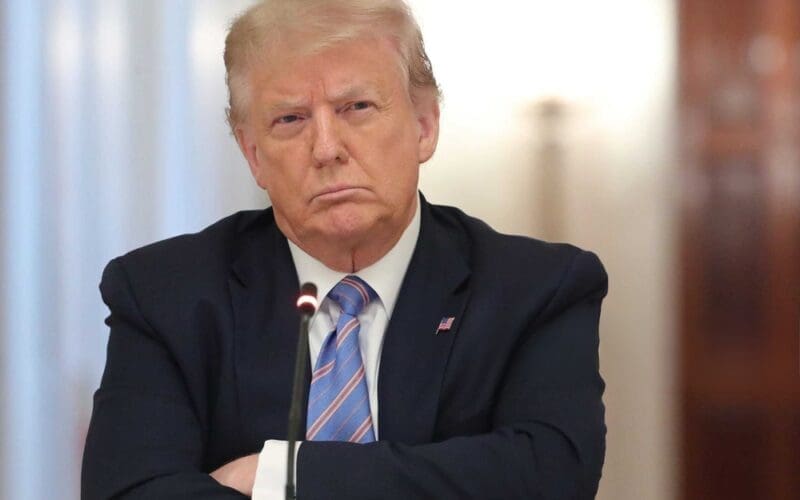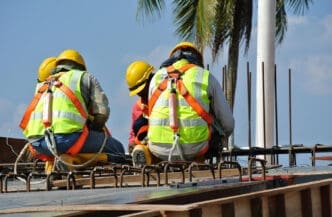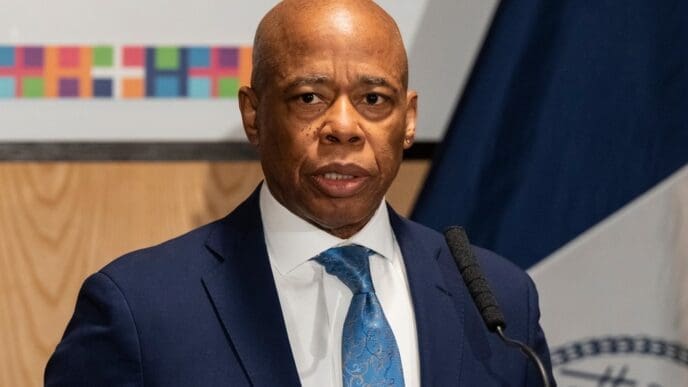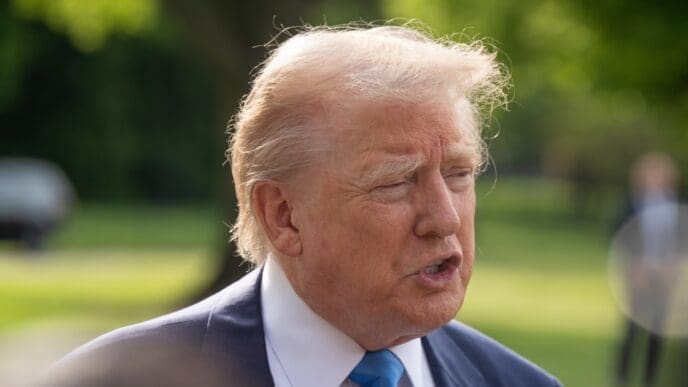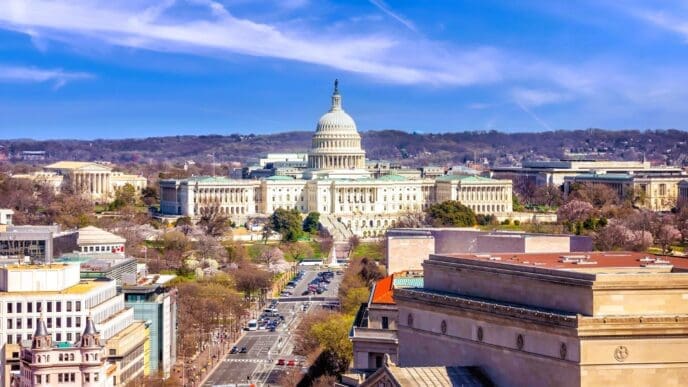Executive Summary
- The Trump administration is facing significant skepticism from legal experts and Congress regarding the legality of a US military strike that killed 11 alleged drug smugglers in international waters.
- The administration’s justifications, citing a terrorist organization designation and President Trump’s Article II powers, are challenged by experts who argue these do not automatically authorize lethal force against individuals traditionally considered criminals, not combatants.
- Further scrutiny surrounds the necessity and proportionality of the lethal force used, given that interdiction was an option, coupled with the administration’s failure to provide detailed factual information or identities of those killed.
The Story So Far
- The Trump administration’s recent military strike is facing intense scrutiny due to the legal complexities of using lethal force against alleged drug smugglers, even those linked to a designated terrorist organization like Tren de Aragua, as legal experts question whether these individuals qualify as legitimate military combatants without specific congressional authorization for military action. This situation highlights a broader debate over the scope of presidential Article II powers in counter-terrorism operations, particularly when applied to groups traditionally handled by law enforcement, and raises concerns about the necessity and proportionality of the force used.
Why This Matters
- The Trump administration’s controversial legal justification for the Caribbean strike, which treats alleged drug smugglers as military targets based on a terrorist designation and Article II powers, could set a precedent for broadening the scope of military force against non-state actors without explicit congressional authorization. This approach challenges traditional distinctions between criminal justice and military engagement, raising significant concerns about congressional oversight, accountability, and adherence to international and domestic laws regarding the necessity and proportionality of lethal force.
Who Thinks What?
- The Trump administration justifies the strike by asserting that the individuals were legitimate military targets due to their alleged affiliation with Tren de Aragua, a designated terrorist organization, and invoking President Trump’s Article II authority and the right to self-defense.
- Legal experts contend that no congressional authorization for war against Tren de Aragua exists, that an FTO designation does not automatically permit lethal force, and that Article II powers require targets to be legitimate military combatants, which drug smugglers traditionally are not.
- Congressional sources and lawmakers express significant skepticism regarding the strike’s legality, are pressuring for a clear legal rationale, and criticize the administration for providing insufficient factual details and transparency.
The Trump administration is facing significant skepticism from legal experts and congressional sources regarding the legality of a recent US military strike that killed 11 alleged drug smugglers in international waters in the Caribbean. The incident has prompted intense pressure from Capitol Hill for a clear legal rationale, which the Defense Department has so far failed to provide, even canceling scheduled classified briefings for key House and Senate committees.
Legal Justifications Under Scrutiny
Administration officials have broadly argued that the individuals on the speedboat were legitimate military targets due to their alleged affiliation with Tren de Aragua, a Venezuelan criminal gang designated by the US as a terrorist organization. A person familiar with the Pentagon’s thinking indicated that the strike was a direct result of this designation, drawing a parallel to actions against groups like al Qaeda.
However, legal experts contend that while Congress explicitly authorized war against al Qaeda in 2001, no such authorization exists for Tren de Aragua. The designation of a group as a Foreign Terrorist Organization (FTO) primarily grants the president authority for financial and legal penalties, such as sanctions, but does not automatically permit the use of lethal force.
Article II Powers and Combatant Status
President Trump’s administration has also invoked Article II of the Constitution, which grants the president authority to use military force in the national interest when it does not constitute “war” in the constitutional sense. Past administrations have interpreted these powers broadly, particularly in the context of counter-terrorism operations.
Legal experts, however, highlight a critical distinction: this amorphous power still requires that targets be legitimate military combatants under both international and domestic law. Traditionally, cartel members and drug smugglers have been treated as criminals with due process rights, not enemy combatants. The Trump administration has yet to offer a justification beyond the FTO defense to establish a state of armed conflict with Tren de Aragua.
In a letter to House Speaker Mike Johnson and Senator Chuck Grassley, President Trump formally notified Congress of the strike, but offered few details beyond a vague claim of his Article II authority. The letter, obtained by CNN, notably did not name Tren de Aragua as the target and indicated that the military was “postured to carry out further military operations.”
Questions of Necessity and Proportionality
Further legal questions arise from admissions by administration officials. Secretary of State Marco Rubio acknowledged that the boat could have been interdicted rather than destroyed, a method used in previous operations. A former Pentagon lawyer stated that any plausible argument for inherent commander-in-chief authority would require demonstrating that lethal force was a last resort, not a first.
President Trump’s letter also claimed the administration acted in self-defense, citing “the inability or unwillingness of some states in the region to address the continuing threat to United States persons and interests.” While this language echoes justifications for force under international law, the former defense lawyer noted that the UN Charter requires defensive actions to be both necessary and proportionate. If interdiction was possible, the necessity of lethal force becomes questionable.
Lack of Factual Details
Experts and congressional aides have also criticized the administration for providing insufficient factual details about the 11 individuals killed to support their assessment as legitimate military targets. Conflicting accounts emerged regarding the boat’s destination, with Secretary Rubio initially suggesting it was “probably” bound for Trinidad or another Caribbean country, while President Trump stated it was headed to the US. Secretary Rubio later clarified that intelligence indicated the vessel “was headed towards, eventually, the United States.”
Despite Defense Secretary Pete Hegseth’s claim that the government “knew exactly who” was on the boat and “exactly what they were doing,” and President Trump’s assertion of having “tapes of them speaking,” the identities of the deceased have not been released. This raises concerns, given past instances where the military and CIA have been criticized for mistakenly killing civilians believed to be terrorists. International law prohibits the deliberate killing of civilians, even in armed conflict, and domestic law prohibits premeditated killings of non-military targets outside such contexts.
The Trump administration’s legal justification for the strike remains under intense scrutiny, with experts and lawmakers questioning the basis for treating alleged drug smugglers as military combatants and the necessity of lethal force as a first resort. The lack of detailed information surrounding the incident continues to fuel calls for greater transparency and accountability.


